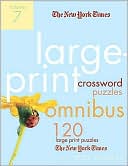The New York Times Presents Smarter by Sunday: 52 Weekends of Essential Knowledge for the Curious Mind
A handy, smaller, and more focused version of our popular New York Times knowledge books—organized by weekends and topic\ Fell asleep during history class in high school when World War II was covered? Learned the table of elements at one time but have forgotten it since? Always wondered who really invented the World Wide Web? Here is the book for you, with all the answers you’ve been looking for: The New York Times Presents Smarter by Sunday is based on the premise that there is a...
Search in google:
A handy, smaller, and more focused version of our popular New York Times knowledge books—organized by weekends and topic Fell asleep during history class in high school when World War II was covered? Learned the table of elements at one time but have forgotten it since? Always wondered who really invented the World Wide Web? Here is the book for you, with all the answers you’ve been looking for: The New York Times Presents Smarter by Sunday is based on the premise that there is a recognizable group of topics in history, literature, science, art, religion, philosophy, politics, and music that educated people should be familiar with today. Over 100 of these have been identified and arranged in a way that they can be studied over a year’s time by spending two hours on a topic every weekend.
The New York Times Presents Smarter by Sunday\ 52 Weekends of Essential Knowledge for the Curious Mind \ \ By The \ St. Martin's Press\ Copyright © 2010 The\ All right reserved.\ ISBN: 9780312571344 \ \ \ NEW YORK TIMES PRESENTS SMARTER BY SUNDAY\ Weekend 1: The Birth of Western LiteratureDay 1: The Iliad and The OdysseyThe tradition of Western literature flows from two primary sources: Homer and the Bible. The two epic poems attributed to Homer, The Iliad and The Odyssey, both concern the Trojan War, a central event in Greek history and brilliantly rendered into myth in Homer’s works. The seed of the Trojan War was planted when the Trojan prince Paris judged a beauty contest between the three goddesses Hera, Athena, and Aphrodite. Each attempted to bribe Paris; Hera with land, Athena with the skills of a warrior, and Aphrodite with the love of the most beautiful woman in the world, Helen of Sparta. Paris chose Aphrodite, and when Paris whisked Helen away from her Greek husband, King Menelaus, the Greek armies banded together to besiege Troy and recapture Helen.The Iliad and The Odyssey have given the world some of the most memorable characters in literature; the mighty but temperamental warrior Achilles; Odysseus the crafty storyteller; the wife of Odysseus, faithful Penelope; and the enigmatic beauty, Helen of Troy. The Greek gods are also described in similar ways. Zeus, Athena, Hera, and Apollo all bicker and seduce with as much zest as the human characters, but their ability to determine the fate of human lives gives them power within both the poems and the culture from which they emerged.Many of the themes in Homer’s work have become central in Western literature. Achilles’ choice between the tranquil, domestic life and that of a warrior is part of the larger struggle of choosing between mortal peace and immortal glory. Odysseus survives his decade-long trip home due to his extraordinary storytelling skills, thereby elevating narrative itself to the highest virtue.\ ?Homer The supposedly blind poet Homer is the alleged author of both The Iliad and The Odyssey, along with other ancient writings. Ancient Greeks believed he was the genuine author, but modern scholars are skeptical. No verifiable biographical information is known, but most dates of his birth range from around 950–850 B.C. in the region of Ionia, now a part of modern Turkey. This range coincides with the establishment of a Greek alphabet and the introduction of writing in ancient Greece and has been determined by clues within the poems themselves. Homer’s epics were meant to be sung, and there is evidence to support the theory that what Homer recorded was the detailed narrative that had been accumulated over several hundred years as the stories became foundational myths within Greek culture. Homer’s phraseology and meter, known as dactylic or “heroic” hexameter, influenced other ancient poets—such as Sappho, Callinus, and Tyrtaeus. The 33 “Homeric Hymns” celebrating Greek deities are named so because they were anonymously written in this form.\ ?The Iliad Homer’s epic poem is about the 10-year war between the ancient Greeks and the Trojans, that may have been waged around 1000–1100 B.C. The war began when the Greek ariled to Troy to avenge the abduction of Helen, the wife of the Greek king Menelaus, by the Trojan prince Paris. The central figure is the young Greek warrior Achilles, who must choose between death with immortal glory on the battlefield and a long life of domestic tranquility ending in an unremarked death.After nine years of attempting to siege the walled city of Troy, frustration plagues the Greek warriors. Their leader, Agamemnon, angers Achilles, who then withdraws from the battle and threatens to return to his homeland. Menelaus (brother to Agamemnon) decides to engage the Trojan hero Paris in one-on-one combat to determine the war’s outcome. Menelaus wins, but the goddess Aphrodite saves Paris, and the war’s status appears in doubt. The gods intervene frequently in the Trojan War, with factions and rivalries as rampant on Mount Olympus as among the mortals below. The gods decide that the war must continue, despite Menelaus’ victory against Paris.Troy’s best warrior is Hector, brother of Paris and son of Priam, the Trojan king. As the war continues, Hector prepares himself for battle and shares a tender farewell with his wife, Andromache, and their frightened son, Astyanax. Hector knows that the longer the war lasts the more likely it is he will never return to his family.With the gods agreeing not to interfere, the Greeks begin to lose ground. Odysseus and Ajax beg Achilles to return. He rejects them and their offerings, expressing his hatred for Agamemnon and claiming he would not rejoin the fight unless Hector and the Trojans were at the beaches, about to burn the Greek ships.After Agamemnon is wounded in battle, Hector and his forces fight against the weakened Greeks. The Trojans reach a moat and a wall that the Greeks have built to protect the ships. A portent—an eagle flying with a snake in its talons—causes hesitation until Hector dismisses its importance. They advance to the seemingly impenetrable wall, and the Trojan hero Sarpedon eventually breaches it, allowing the Trojans to force the Greeks back to the ships.The god Poseidon intervenes on behalf of the Greeks to encourage them to reengage the battle. He succeeds, and Hector and his troops are halted. Meanwhile, Zeus favors the Trojans. However, his wife, Hera, uses all her charms to soothe Zeus into a deep sleep to aid Poseidon’s intervention. The deceit is successful, and the Greeks push the Trojans back, wounding Hector in the process. Zeus awakens and is enraged. He berates Hera and has Poseidon abandon his effort; he also has Hera send Apollo to rejuvenate Hector and send him back to battle. The Trojans take control and drive the Greeks back to the ships, which they heroically defend, although they realize the tide of battle has again changed.Still Achilles stays away, but his beloved companion, Patroclus, wishes to fight, and with Achilles’ blessing dons Achilles’ famous armor and leads his men to drive the Trojans away from the ships. Patroclus slays Sarpedon, thereby enraging Hector, who leads a charge against the Greeks and kills Patroclus in revenge.Achilles is overwhelmed with grief. His desire to avenge Patroclus sends him back into battle. At an assembly of the army, Achilles and Agamemnon reconcile. The Greek army, Achilles in the lead, takes to the battlefield. With Achilles back in the battle, Zeus assembles the gods and permits them to side with their favorite mortals. Achilles and the Trojan Aeneas (the future founder of Rome) face off, but Poseidon saves Aeneas. Achilles then encounters Hector, and each is saved in turn by Athena and Apollo. Achilles then goes on a bloody rampage through the ranks of the Trojans, forcing the Trojans to retreat to their city walls.Hector alone remains outside to battle Achilles. Priam begs him to reconsider, but Hector insists. Achilles approaches, and fearing for his life, Hector runs around Troy’s walls three times as Achilles chases him. They finally fight, and mighty Hector is killed. Achilles ties his feet to a chariot and drags Hector toward the Greek ships as Hector’s wife and parents look on in grief.Achilles mourns for Patroclus, whose body is cremated, and elaborate funeral games take place. Priam remains disconsolate without even the comfort of honoring Hector’s body. The gods offer a solution: Thetis tells Achilles to accept a ransom for the return of Hector’s body, and Iris convinces Priam to approach Achilles with valuable gifts. The Iliad closes with Hector’s funeral, signaling impending doom for the city of Troy.\ ?The Odyssey Homer’s epic tale covers the period following the Trojan War and recounts the travels of the Greek warrior Odysseus in the 10 years he takes to return to his homeland, Ithaca. As the story begins, it has been seven years since the end of the war, and Odysseus is trapped on the island of the goddess-queen Calypso. Back home in Ithaca, a group of rowdy suitors have gathered to try to win the hand of Odysseus’s wife, Penelope. His grown son, Telemachus, is visited by the disguised Athena and advised to dismiss the suitors and seek the whereabouts of his father.Accompanied by the disguised Athena, Telemachus sails to Pylos, home of wise old Nestor, a survivor of the Trojan War, and then to Menelaus and Helen at Sparta. Menelaus tells several tales of the war, including Odysseus’s ploy of the Trojan Horse. He also relates Agamemnon’s fatal homecoming and the imprisonment of Odysseus by Calypso.Odysseus is still with Calypso, longing to return home. After Athena’s intervention, he builds a raft and sets off, but wrathful Poseidon drives Odysseus into the sea. He washes up on the island of the Phaeacians, where he is received as an honored guest. The following day, King Alcinous’ men prepare a ship for Odysseus’ return, and a great feast is held in the palace, where Odysseus is asked to recount his adventures.He relates his encounter with the giant one-eyed Cyclops, who devoured several of his men before Odysseus lulled him to sleep with wine. He and his men then gouged out his eye and retreated to their ship. (The Cyclops was Poseidon’s son, and his murder is the reason for Poseidon’s anger toward Odysseus.) Odysseus tells how he approached Ithaca but was blown back by the winds and landed on the isle of the Laestrygonians, cannibals who killed most of his men. They then landed on Aeaea, the home of the goddess Circe, who turned many of his men into swine and convinced Odysseus to stay with her in luxury. He eventually leaves with instructions from her to visit Hades and consult the seer Teiresias about his future.Odysseus obeys and confronts Teiresias, who predicts he will have a difficult journey home but will live long and die in comfort in his homeland. He returns to Circe’s island and then sails by the spell-inducing Sirens and the rocks and whirlpool of Scylla and Charybdis, losing six of his men. He lands on the island of the sun god Hyperion, where his men disobediently devour the god’s sacred cows, resulting in their death in a storm and leaving Odysseus alone to float to shore on Calypso’s island.Alcinous and his court are amazed at Odysseus’s tale, but soon Athena appears to inform him of the trouble at home. She changes his appearance into that of an old beggar and sends him to his former swineherd, Eumaeus, at Ithaca. Odysseus proceeds to Eumaeus’s hut, where he is graciously greeted as a stranger. Athena also sends Telemachus to Eumaeus’s hut. He obeys, and when Eumaeus leaves to tell Penelope of Telemachus’s return, Athena returns Odysseus to his natural form, and he identifies himself to his son. They conceive plans for Odysseus’s return to the palace and for the disposition of the suitors. Telemachus alone knows his true identity.In the palace, Penelope sits with the disguised Odysseus, and he assures her that her husband will return shortly. She doubts him, but her aged maid, Eurycleia, who nursed Odysseus, notices a familiar scar on his feet, and recognizes him but is forced to secrecy. Odysseus is enraged as he observes the household with the suitors continuing to waste his resources while they discuss murdering Telemachus.Penelope reluctantly announces to the suitors that whoever can string Odysseus’s great bow and shoot an arrow through the openings of 12 axe handles will have her hand in marriage. They each try, but none can string the bow. Odysseus, still a disguised beggar, asks to try and successfully shoots the arrow through the axe handles to the amazement of all. Odysseus and Telemachus together kill the suitors one by one.Eurycleia wakes Penelope to tell her that the aged beggar is Odysseus and that he has killed the suitors. Penelope has doubts and meets with Odysseus, who proves himself by describing their marital bed, built from an olive tree, a fact unknown to others. He recounts the tales of his return, and they are finally reunited.Day 2: Origins of Theater: Greek DramaLegend has it that Western drama began in 534 B.C., when the Greek poet Thespis first stood apart from the chorus to speak as a separate actor, giving birth to the term thespian. Thespis was most likely performing in a dithyramb—a choral hymn and dance—that was performed in honor of Dionysus, the god of fertility and wine. Thespis was the first recorded entrant in the Great Dionysia, a playwriting competition in honor of Dionysus, held each year in Athens, which drew all the great playwrights of the day. Tragedy emerged as a dramatic form before comedy, and the earliest competitions were between cycles of three tragedies followed by a satyr play, a kind of whimsical burlesque. The tragedies dealt with stories of the gods or tales of historical Greek heroes. Though playwriting was likely a popular pastime, the works of only three Greek tragedy writers survive: those of Aeschylus, Sophocles, and Euripides.\ ?Aeschylus Historians believe that Aeschylus was born around 525 B.C. in Eleusis, a city just west of Athens. Democracy was burgeoning in Athens, and when Aeschylus was about 35 years old, he participated in the Battle of Marathon—the Greeks’ first successful victory over the invading Persians. Aeschylus entered the Great Dionysia every year, winning for the first time in 472 B.C. with The Persians, which was based on his military experience. It is the oldest of his surviving works.In 458, Aeschylus wrote his best known cycle, The Oresteia, which is the only surviving complete ancient trilogy. The first play, Agamemnon, tells the story of the return of Agamemnon, king of Argos, from the Trojan War. His wife, Clytemnestra, having entered into an affair with his cousin, Aegisthus, has planned his assassination. She kills him in the bath with an axe, in a style similar to that of animal sacrifice. The play ends with the chorus foreshadowing the return of Orestes, Agamemnon’s son, to avenge his father’s death.In The Libation Bearers, Orestes is reunited with his sister, Electra, at Agamemnon’s grave. Once Orestes convinces Electra of his identity, he and his sister devise a plan to kill their mother and Aegisthus, now her husband. After deceiving his mother so that she will receive him, Orestes reveals himself to Aegisthus and kills him. Orestes then struggles over the opposing calls of familial duty, but eventually decides to go through with the murder of his mother. As he flees the palace, he is haunted by the Furies—fierce female deities thought to be the personification of the anger of the dead.The Eumenides presents the judgment of Orestes. The Furies chase Orestes to the temple of Apollo in Delphi, where Apollo holds off the Furies and sends Orestes to Athens. The Furies later find Orestes in Athens clutching a statue of Athena. Smelling the blood of his mother in the air and seeing blood soaking the ground around his feet, they surround Orestes. However, Apollo convinces Athena to acquit Orestes. The Furies are renamed the Eumenides and charged with ensuring the prosperity of Athens. Mercy, Athena claims, is always preferable to vengeance.Before Aeschylus, drama was limited in form to one actor, the protagonist. This actor could play different roles, but could only have dialogue with the chorus. Thematic and aesthetic possibilities were opened by Aeschylus’s addition of a second actor. In his writing, Aeschylus also advanced the idea of hubris—the extreme arrogance of a character, and usually justification for the character’s downfall. For all his textual innovations, Aeschylus was more than just a writer. He also mastered set and costume design, employed scenic effects, and both choreographed and trained his chorus. Because the standard practice was for dramatists to act in their own plays, Aeschylus was also most likely a performer.\ ?Sophocles The next of the revolutionary Greek playwrights was Sophocles, who, as an undiscovered novice, became a legend when he beat Aeschylus at the Dionysian festival of 467. Sophocles was born around 496 B.C. near Athens. In 442, he served as one of the treasurers managing money flowing in and out of the Delian League, and in 440 he was elected one of the executive officials in command of the armed forces. By 413, in his old age, Sophocles was one of 10 commissioners entrusted with rebuilding Athens following its defeat at Syracuse.Sophocles wrote 123 dramas for the Great Dionysia. Historians believe that he competed about 30 times and claimed as many as 24 victories. Despite his prolific output, only seven of his plays are extant. His works, unlike those of Aeschylus and Euripides, which deal primarily with religious and intellectual matters, revolve around the folly of human existence. Most of Sophocles’ characters lack basic wisdom, and plots generally feature flaws of character or matters of confusion—rumors, ruses, madness, and quick judgment.Most of Sophocles’ influential work cannot be traced to a specific year, though Ajax is generally considered the earliest surviving play. Electra and Philoctetes are among his more famous, but his best-known works are the three Theban plays. These plays are considered the premier achievement of high Greek drama, both for complexity of plot and psychology of character.Oedipus Rex, or Oedipus the King, was the second of the Theban plays to be produced (first performed in 429 B.C.; the first was Antigone) though it comes first in the trilogy’s internal chronology. Before the first scene of Oedipus Rex, Oedipus has left his hometown of Corinth, having heard an oracle prophesy that he will kill his true father and marry his mother. While journeying to Thebes, Oedipus is nearly run off the road by an old man. He kills the old man and proceeds. He saves Thebes from the Sphinx, and as a reward becomes king of the city, and husband to Jocasta, the widow of Thebes’s former king. King Oedipus is told that to quell a plague in Thebes, he must avenge the death of Laius, Jocasta’s first husband. The majority of the play’s tense and ominous action revolves around this investigation: it is revealed that Laius was the old man whom Oedipus killed; that Laius and Jocasta gave up their son after the oracle told them of the same prophecy that Oedipus has heard; and that Oedipus, having been raised by foster parents, is their son. In killing Laius and marrying Jocasta, he has unwittingly fulfilled the prophecy. Upon learning the truth, Jocasta hangs herself, and Oedipus stabs his eyes with needles to enter a life of retributive introspection.In Oedipus at Colonus, the old and blind former king wanders in exile, rejected by his sons, and cared for by his daughters, Antigone and Ismene. Oedipus comes upon the sacred grove of Colonus, where Theseus, king of Athens, guarantees him protection. Oedipus’s son, Polyneices, is bent on attacking Thebes. Oedipus puts a curse on him, which eventually results in Polyneices’s early death. Oedipus dies when he is swallowed into the earth at Colonus, where he becomes a mysterious protector of the land that has given him refuge.Part three, Antigone, deals with the conflicting issues of civic versus familial and religious obligations. It opens just after Creon, new king of Thebes and brother to Jocasta, has declared that anyone who buries Polyneices—whose body has been left just outside Thebes after his failed attempt to attack the city—will be punished by death. Ignoring the threat and instead adhering to familial loyalty and love, Antigone buries her brother’s corpse, and is then condemned to die. The blind prophet Tiresias convinces Creon to commute her sentence, but Antigone has already killed herself in prison. Creon’s son is so distraught by the event that he kills himself, and Creon’s wife, in a fit of depression, kills herself as well.Like Aeschylus, Sophocles was a master of all theatrical trades. He is credited with inventing “scenic paintings,” backdrops meant to establish location or mood. Sophocles’s main textual innovation was to bring a third actor onstage, which allowed the playwright to add more characters and the actors to broaden their interactions. In 406, Sophocles led a public chorus of mourning for Euripides, a contemporary 16 years his junior, and died the same year at the age of 90.\ ?Euripides Euripides was the third of the great Greek tragic dramatists. He entered the dramatic festival for the first time in 455 B.C. and won his first festival in 441. He was controversial for his rationalization of ancient Greek religion—the myths and legends that formed the basis for most other classical dramas.About 19 of Euripides’ 92 plays survive, the best known being Medea, first performed in 431. Medea, princess of Cochia, marries the hero Jason and bears him two sons before Jason leaves her and takes the princess of Corinth as his wife. Medea decides her best revenge is to leave Jason to grow old alone, with neither wife nor children, and kills both the princess of Corinth and her own sons. She then disappears in the chariot of the sun god Helios, her grandfather, and Jason is unable to avenge his family’s death.\ ?Comedy Comedy has its moments in the great tragedies of Aeschylus, Sophocles, and Euripides, but the comedic form emerged slightly later. Greek comedies became audience favorites for their bawdy and topical humor used to skewer politicians and the wealthy. Historians pinpoint three phases of the genre—Old, Middle, and New—the first characterized mainly by the works of Aristophanes, author of the sole surviving Old Comedic plays. Burlesque, pantomime, and the chorus were assigned important functions in the plays of Aristophanes, and his plots were marked by fantasy, satire, sexual humor, political critique, and invective against public figures—such as Euripides, seen notably in Aristophanes’ The Frogs. \ ?Aristophanes Most facts about Aristophanes’ life are gleaned from the text of his roughly 40 plays. He was born about 450 B.C., and wrote his first play, The Banqueters, in 427. The oldest of his plays to survive intact is Acharnians, first performed in 425. Aristophanes is known for the witty dialogue and episodic parodies that make up his plays, which, though their plots are often fractured or incomplete, have managed to transcend thousands of generations. Some are still performed today.Two of Aristophanes’ best-known works are The Birds and Lysistrata. Some scholars regard The Birds as a fantastical comedy, but others see it as a political satire on the failed expedition of Athens to conquer Syracuse. The protagonist of The Birds, Peisthetaerus, persuades birds to help him build a new, perfected city to be suspended below heaven. Peisthetaerus and his helpers are then charged with keeping undesirable humans out of their new home, Cloudcuckooland. Lysistrata was written after the defeat of the Athenian expedition to Sicily in 413; it is generally read as a commentary both on gender issues and the Peloponnesian War. In the play, the title character convinces all the women of Greece to refuse sex until men have drawn up a peace agreement between Athens and Sparta, after which the women of each city are reunited with their husbands.The last play of Aristophanes’ career, Wealth, is a marked transition into the era of Middle Comedy, which was followed by the New Comedy of ancient Greece. These traditions moved away from parodying public figures and events, and instead featured characters that were average Greek citizens. The chorus also further receded. The New Comedy playwright Menander is credited with having introduced stock characters (the catty barmaid, the arrogant warrior, the wise king, etc.) in about 320 B.C. By the beginning of the fourth century, Greek drama had been roughly defined by its star playwrights, but it wasn’t until Aristotle (384–322) published his Poetics that the ideals of drama were formally defined—ideals that would inform Western drama for centuries to come. Aristotle introduced the term catharsis—the purging of spectator’s emotions through pity and fear—and insisted that playwrights create a unified sense of time, place, and action. For Aristotle, characters were second to plot, a conviction that was standard until the modernist dramas of the 20th century.Copyright © 2010 by The New York Times Company. All rights reserved. \ \ Continues... \ \ \ \ Excerpted from The New York Times Presents Smarter by Sunday by The Copyright © 2010 by The. Excerpted by permission.\ All rights reserved. No part of this excerpt may be reproduced or reprinted without permission in writing from the publisher.\ Excerpts are provided by Dial-A-Book Inc. solely for the personal use of visitors to this web site. \ \
\ From Barnes & NobleEducation doesn't end with a diploma: Knowledge continues proliferating and, once the tests are over, let's admit it, we begin to forget. What we need is a refresher course that doesn't feel like one. As if in answer to our brain drain, the New York Times presents a friendly, smart, 52-weekend catch-up course on all the things that we should know, but probably don't. Each of the book's 104 entries have been organized to help you master information on a specific topic in two hours. The subjects cover the world; from Genetics and Global Warming to Philosophy, The Cold War, and American Popular Music. Comprehensive, yet cool.\ \ \







